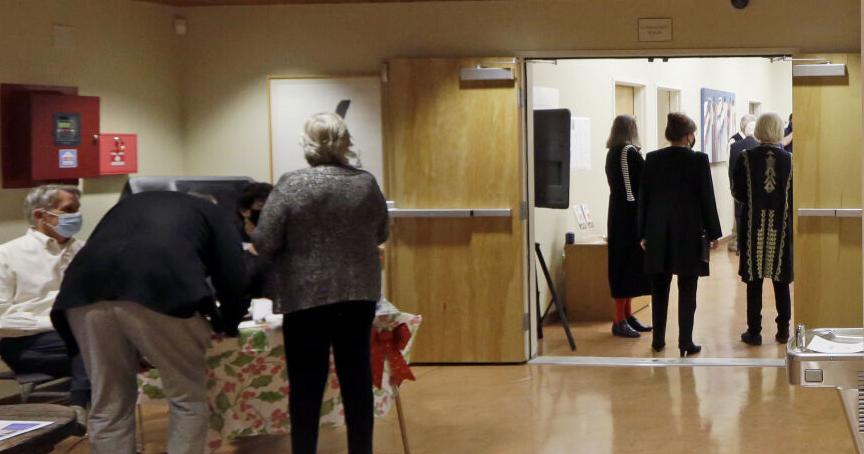
Life Circle New Mexico is looking to provide a designated, daytime place for people with dementia to go in Santa Fe — and an opportunity for their caregivers to unwind.
This month, the nonprofit opened the Center for Healthy Aging Adult Day Service Program on Espinacitas Street, in the building formerly occupied by the Hopewell Community Center. No clients had signed up yet as of Thursday, said director Anna Blea.
Blea said the organization has 30 spots and offers full-day care for aging adults who need memory care at a rate of $118 per day, with sliding scale options available for clients based on availability and financial need. The center will operate more like a preschool with a set schedule, she said.
The aim, said activities director Lea VanMerkestyn, is to keep a consistent day-to-day schedule to promote better cognitive health, while offering slight variations in programming to keep people stimulated.
“Repetition with a twist of novelty,” she called it in a recent interview.
Life Circle founder Michael Munson, who chairs the nonprofit’s board, said the city hasn’t seen an adult day care center like this in nearly a decade.
When former center Open Hands shuttered unexpectedly in 2012 due to funding issues, Munson — who acted as a caregiver for his elderly mother until her death — went scrambling for solutions.
“There are programs in Española, Los Alamos and Taos [and a] plethora of them in Albuquerque. But none here,” he said.
Munson contacted the city, the county and other adult day centers in New Mexico at the time in an unsuccessful search for help.
“We made the commitment at the beginning to say, ‘If we can’t get anybody to do this, we’ll do it ourselves,’ “ Munson said.
In 2018, Life Circle New Mexico released a needs assessment evaluating the adult day services landscape in the county. The assessment found the elderly population was booming compared with other age groups and was expected to triple countywide by 2040.
The assessment called the availability of resources for the population “limited and fragmented,” and said some of the assisted living options becoming available for seniors wanting to avoid facilities were costly.
“It’s taken us a long time. We really thought it would be better if somebody experienced with this whole thing would do it,” Munson said. “But we’re doing it, and we’ve got a really good team.”
Life Circle also provides home-safety modifications to seniors to support “aging in place.”
On a Tuesday in early December, the center was quiet. There was a gym space, a large kitchen and a “sensory integration” room equipped with a bed for clients who might need quiet space away to acclimate to the surroundings.
A cabinet in the recreation room was stuffed with unopened art supplies, while the center’s backyard remained wide open. Blea said she hopes seniors can help cultivate a garden and the resulting vegetables could be used in the kitchen.
Board member Stephanie Green said while Santa Fe has senior centers, they’ve been shuttered since the start of the coronavirus pandemic.
The city’s senior services division, Blea said, will help provide transportation and meals until the center purchases a van with money from a recent Department of Transportation grant.
In addition to art projects and exercise, such as “chair yoga” to promote core strength and help prevent falls, VanMerkestyn wants to make music and dancing a strong part of clients’ day-to-day life.
She’s ready with instruments.
“One of the things that’s near and dear to my heart is music,” she said. “One of the last things for people to be able to participate in is music.”
A major goal of the center, according to board member Cindy Rinaldi — a licensed clinical social worker with gerontology training — will be the free time it provides others.
The Alzheimer’s Association estimates there are 108,000 unpaid family members caring for people with Alzheimer’s or another kind of dementia in New Mexico.
Many of them, Rinaldi said, aren’t fully aware of how the diseases work or where to find resources to help. Others, she said, are part of the “sandwich generation” attempting to care for children and aging parents at the same time.
Prospective clients will go through an intake process to assess their physical and mental health along with cognitive ability. Those with severe dementia or Alzheimer’s may not be eligible for the setting, Blea said.
“People don’t realize how much they need something, sometimes, until they have it,” VanMerkestyn said. “I feel like once we start accepting clients and the word starts spreading, I think we’re going to see a huge waitlist.”
